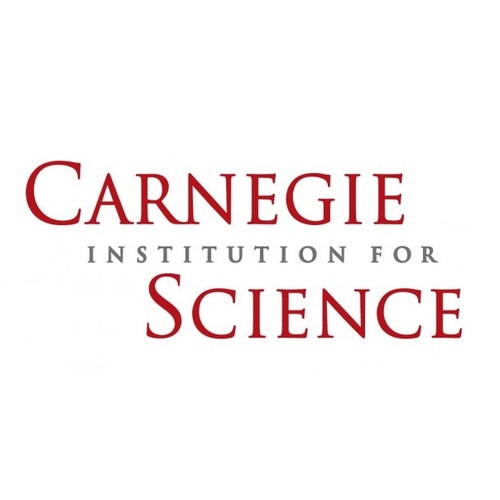 Research by RNA leaders provides powerful gene-silencing technique
Research by RNA leaders provides powerful gene-silencing technique
Washington, D.C.—The Carnegie Institution for Science and the University of Massachusetts Medical School (UMMS) have been granted United States Patent 8,283,329, entitled, “Genetic inhibition of double-stranded RNA.” The patent, issued on October 9, 2012, is broadly directed to the use of RNA interference (RNAi) to inhibit expression of a target gene in animal cells, including mammalian cells.
The process by which RNA, the cellular material responsible for the transmission of genetic information, can silence a targeted gene within a living cell was discovered in 1998 by Carnegie’s Andrew Fire, (now a professor at Stanford University) and Craig C. Mello, Howard Hughes Medical Institute Investigator, Blais University Chair in Molecular Medicine and distinguished professor of molecular medicine and cell & developmental biology at UMass Medical School. The duo received the 2006 Nobel Prize in Physiology and/or Medicine for this work.
Already a powerful research tool used to isolate and identify genes and their function in the laboratory, RNAi holds the promise of shutting down disease-causing genes in humans and has broad implications for the development of new treatments and drugs for a range of diseases, including cancer. Researchers around the globe—including UMass Medical School and the Carnegie Institution—are investigating novel methods for synthesizing and delivering RNAi molecules able to turn off disease-causing genes to human cells. According to the patent, the double-stranded RNA (ds-RNA) responsible for the RNAi process may be either synthesized by the animal cell, or otherwise provided to the cell, in an amount sufficient to inhibit expression of the target gene.
The single-stranded RNA molecule is commonly known for its role in shuttling the genetic code contained in DNA from the cell’s nucleus to its ribosomes where proteins are made, and for making sure that the proteins are correctly constructed to perform their functions in living organisms. In RNAi, the first strand of double-stranded RNA molecule has the ribonucleotide sequence that matches the nucleotide sequence in the targeted gene (also called sense); the second strand of RNA has a complementary sequence to that in the target gene (called antisense). When introduced to an organism, the double stranded RNA degrades a specific messenger RNA (mRNA) molecule, which disrupts the message-carrying process and inactivates the gene, essentially halting the progression of an invading viral infection or, for example, tumor growth.
“We are very pleased that the United States Patent and Trademark Office has issued this broad patent for the groundbreaking work of Dr. Mello and Dr. Fire,” said James P. McNamara, Executive Director of the Office of Technology Management of the University of Massachusetts Medical School. “RNA interference is a tremendously promising tool with enormous potential for treating disease. Our hope is to see the further advancement of the RNAi field toward novel therapies in the public interest.”
“We are very pleased that the patent office has granted a patent of the present scope for such a fundamental advance,” said Richard A. Meserve, president of the Carnegie Institution. “The research exemplifies what Andrew Carnegie sought to accomplish—to benefit humankind.”
The current patent is the most recent of several patents resulting from this work.
The Carnegie Institution for Science (carnegiescience.edu) is a private, nonprofit organization headquartered in Washington, D.C., with six research departments throughout the U.S. Since its founding in 1902, the Carnegie Institution has been a pioneering force in basic scientific research. Carnegie scientists are leaders in plant biology, developmental biology, astronomy, materials science, global ecology, and Earth and planetary science.
The University of Massachusetts Medical School has built a reputation as a world-class research institution, consistently producing noteworthy advances in clinical and basic research. The Medical School attracts more than $250 million in research funding annually, 80 percent of which comes from federal funding sources. The work of UMMS researcher Craig Mello, PhD, an investigator of the prestigious Howard Hughes Medical Institute (HHMI), and his colleague Andrew Fire, PhD, then of the Carnegie Institution of Washington, toward the discovery of RNA interference was awarded the 2006 Nobel Prize in Physiology or Medicine and has spawned a new and promising field of research, the global impact of which may prove astounding. UMMS is the academic partner of UMass Memorial Health Care, the largest health care provider in Central Massachusetts. For more information, visit www.umassmed.edu.
